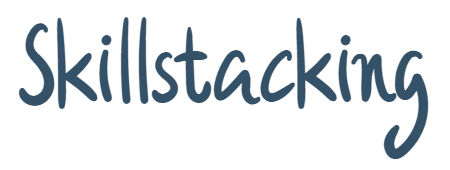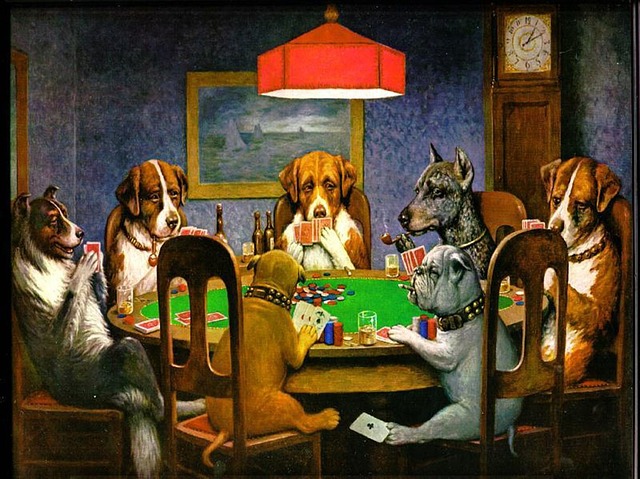Poker helped me discover life lessons. It is more than a game of chance; it is a harsh teacher that never gives up on you.
I’ve been running a poker game from my house nearly every Friday nights for the last 12 years. It is a great way to grow closer with other people. I’ve developed and nurtured many of my closest friendships through the table.
This Poker Group of men has a place where they can go Friday nights where they are just happy to see each other, stories are told, and the stress of the week just melts away. Waking up Saturday morning, we are recharged and ready to return to our familial duties.
Poker runs players through the gamut of emotions, some of them not so pleasant. Newbies feel the intimidation and pressure of learning the game against more experienced opponents. Internal rage and sorrow abound when the cards did not meet expectations. Humiliation can be the chief emotion when one was bluffed out of a hand or completely misread the opponent. The smugness of outplaying an opponent and the bliss of winning a pot of a few hundred dollars and the impatience for the next game can be alluring. Shame and/or guilt when not winning graciously or making a joke that clearly hurt someone else’s feelings. Poker can be a brutal game and people can choose to see only the negative. Ultimately, most people keep coming back for the competition, the chance to make money and/or the high of winning.
(Poker is also sometimes perceived as negative because of the gambling component. There are a lot of stories around lives being destroyed around problem players. Like anything in life, moderation is the key. Family before poker. Responsibilities before poker. Only play with money you are willing to lose. In my home game, the buy-in is $20. There needs to be money at stake for the game to be clear, but the amount should be low.)
With a proper relationship to poker, and a willingness for self-discovery, I’ve identified a few lessons that I have seen in many places in my life.
- Patience. At a 10 person table, we are expected to play about 1.5 full hands per hour. Statistically, it is very difficult to make money. Folding is actually boring but it is the way to winning.
- Humility. There are times when we are outplayed by other players. Full Stop. This teaches us that no matter how smart we think we are, someone else can outfox us.
- Prudence. Frequently rIsking all of our chips in one hand gets the adrenaline going, but can be quite costly. Keeping chips on the side in order to be able to bet another hand is very important.
- Grace. Hopefully this happens when playing with the same friends over and over again. Beating friends can be fun for all, but winning graciously is a much better feeling in the long run.
- Empathy. When you get beat in a hand you should have one, it hurts. When we do it to someone else, we feel and see their pain. That is empathy.
- Emotional control. Losing a hand we should have won can be very frustrating but it is part of the game. The more hands one wins/loses, the less each individual hand means. Controlling extreme emotions in the face of adversity is a very useful skill.
- Dealing with failure. A player has played perfectly, gone “all in”, and the odds of winning are 95%. There is nothing left to do but watch the last card drop. It deals a crushing blow. This game is over. All that is left is to self-congratulate for the excellent play, the lousy outcome, and to live for another game.
- Grit. After going through tough times, players discover the resolve to keep playing. Too many people experience a bad outcome in life and say “I’m not going to do that again”! Poker continuously helps players practice dealing with adversity.
- Quantifying risk. When putting chips at risk, both the chance and severity of losing them is very important. A player may have a 65% chance of increasing her pot by 200%, but is she willing to risk 90% of her chips for that? How much longer is left in the game? Can she buy or afford to buy more chips?
- Taking personal responsibility. The players who “blame the cards” for the outcome of their game have yet to learn that in the long run, they are responsible for their outcome. In Poker. In Life. Any one hand can be (un)lucky, but in the long run, the outcome is your responsibility. Period.
- Gratitude. We are able to play the game. The rules are set. We are free to play or not play. Too often, we forget the fact that we live in a country where the rules are known and enforced. We have so many freedoms to succeed at the game of life, and we can be thankful for that.
- Fairness is in the rules, not the outcomes. Should we expect “fairness” in life? What is “fairness”? In poker, we learn that losing a hand that we should have won (bad beat) is not a question of fairness, but statistics. It is neither moral nor immoral. The fairness is in the equal application of the rules, not the random outcome of any particular combination of cards.
That is a pretty good list at the moment. If you have others, please let me know, and I would love to keep adding to this list. I deliberately stuck to values in life, and stayed away from tactical lessons, of which there are many.
In a future blog post, I may just go over the tactics that are learned in poker. Everyone knows about bluffing, but there are so many more tactics that apply to real life. Examples include a stoic mindset, breathing, moderation, feigning strength, feigning weakness, dispassion, information control, picking a game, tactical withdrawals, etc.
I am grateful to the game and to my very good friends who join me every week on this poker quest for self-improvement! 😉
Bonus. Here is one quick story where I applied Poker to Business.
I had fallen in love with a particular property, and I really wanted to have it. The problem is that the inspection and due diligence had shown that it was 15% overpriced; I wanted to ask the seller for a price adjustment to make the return go from good to great. I have already spent $15,000 on a variety of sunk costs. I knew the seller had a lot of income taxes owing, had 2 mortgages; not a good situation. The agent told me that the seller would not accept any counter offers this late in the game and I would be refused. Was he posturing (bluffing)? Or was he serious?
Then I drew upon my poker lessons. Take the emotions out. Breathe. Ignore the sunk costs. Breathe. Assess the risk. Breathe. Once I became stoic about the situation, my mind cleared, and I officially wrote the counter offer, ceding all control to the seller. Breathe. Wait. He accepted the offer! My partners and bought the property at the right price.
The return on investment is great to this day thanks to the poker lessons I applied. Just playing poker helped me win.







great analysis and description. The quick story is essential, brings it home
Thanks! We sure do miss you at the poker table 🙂
A well written piece. It’s reflective and fun. The picture adds lots of humour.
I like your bonus story the most. The journey of an investment entrepreneur takes tremendous courage. It’s not for everyone. A wrong move can cause many sleepless nights. Why not making this a post on its own called “The Art of Making A Deal”?
Many people with a decent amount of savings find the task to find a home for their money is daunting. What if the blog addresses their needs directly?
Yes, good feedback. Right now I have about 40 blog article titles! No shortage of ideas at the moment. This entire process is quite interesting, and I do enjoy writing.
I am very tactical so I quite agree with you that some more tactical articles should be written. I’m actually thinking of also putting online calculators on the site. One is already being worked on:
Comparison tool for 3 mortgages. You plug in 3 scenarios and it forecasts the coming years. That one should be fun.
“The Art of Making A Deal” sounds very much like Trump’s book “The Art of the Deal”. Would I be too close? 😉
Many real estate agents have on-line mortgage calculators, and investment focused agents have cash flow calculators for rental properties. What you are doing is far beyond these. I think.
The process of a multi-million dollar deal making can be a killer content. The obstacles, the ups and downs, and you sealed it in the end. A real estate fan like me will be very interested to read a piece like that.
I think 12 items is probably too long.
I bet there are some anti-lessons you could also write about. Greed. Trying to make up for losses. Digging in too deep. Taking things personally.
People want to hear about how you mess up too. 🙂
Let me try to add some lessons I learn the hard way. (“Ouch that is hot” lessons!)
1. Unnecessary Greed: When you go “all in” hoping for the win, the disaster that awaits you is that you are left holding nothing.
2. Taking Things Personally: The cards are the cards. They fall as they may. If you statistics and probability personally, you will not be a very happy camper.
3. Taking Wild Chances after a heartbreaking loss. (Going on a Tilt). If you gave a devastating loss, do not try to make up for it with a bad action right after. Go back to your usual routine, or learn from it. Rebound relationships never work?!
4. Poking Fun at things people cannot change. I’ve made the mistake of making fun of a person’s unchangeable characteristics (too short/too tall). Unfair. If you are going to tease somebody, do it good naturally, and limit it to things they can change an are fairly unimportant.
5. Playing to Win at all Costs. When you play to win at poker, it can be at the expense of others. The goal is a good time. You may win the pot, but they have won a good evening of fun and a chance to win the next time. In poker as in life, bare knuckle brawling is not the best way to live. Respect you opponents. Be kind. Be happy for them when they win, and only be upset at yourself when you did not play the game properly. When the stakes are not life and death, then play that way.
12 items was too long indeed, and now I added 5 more! Maybe I should add “Keep it Short Stupid” to my list… 🙂
Heya i am for the first time here. I came across this board
and I find It truly useful & it helped me out much. I hope to give something back and help others like you aided me.
Hi. Do you allow guest posts on marckoran.com ?